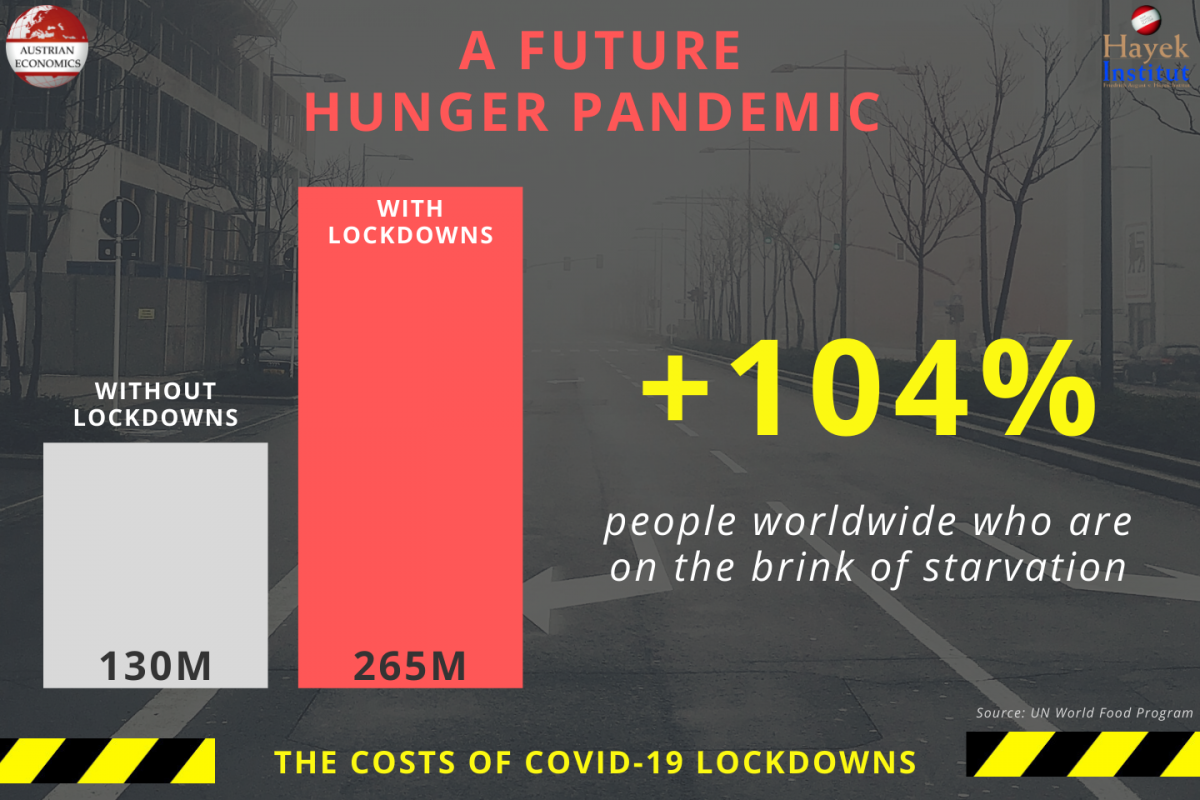For many decades and centuries the world has made great progress in the fight against hunger. While we were all – all across the world – poor for most of history and only one bad harvest could mean an early death, we have been able to build prosperity previously unimaginable since the beginning of the industrialization. Hardly anyone in the West goes hungry these days. But capitalism, the greatest generator of wealth we know, has also lifted hundreds of millions of people out of total poverty in poorer parts of the world. It is estimated that by 2030, hunger itself could be a thing of the past – or it could have been.
Lockdowns and a halt of our economic life can perhaps be afforded by rich industrialized countries for a short time – but if the consequences are already catastrophic here, how bad is the situation in countries that have only built up a small wealth base (and where this base is often only in the hands of a few autocrats)?
While the 1.5 million deaths from Coronavirus recorded worldwide as of December 8 is a shocking and staggering number, it is small when compared to the 265 million people who go to bed so hungry each day that there is an imminent risk of starvation because they do not have enough to eat. The number of acutely starving people was recently estimated at 130 million, but has since increased by a further 135 million due to COVID-19 lockdowns, according to the UN World Food Program. Program director David Beasley speaks of an impending “hunger pandemic” – a pandemic that is very likely to be much worse than the one we are currently fighting.
 The coronavirus has dominated all of our lives in recent months. Radical paths were taken by politicians in the form of lockdowns to contain the pandemic. But we should recognize that even if the coronavirus is a (major) challenge for us, we always have to keep a holistic view of world events. Just as there are epidemiological factors to consider in this crisis, there are also economic, social, cultural, political and other health factors at play. It is precisely these other factors that are so often forgotten in the panicky reporting, in the constant, manic tracking of the current infection numbers, that we want to take a look at in our series “The Costs of Coronavirus Lockdowns” in the coming weeks.
The coronavirus has dominated all of our lives in recent months. Radical paths were taken by politicians in the form of lockdowns to contain the pandemic. But we should recognize that even if the coronavirus is a (major) challenge for us, we always have to keep a holistic view of world events. Just as there are epidemiological factors to consider in this crisis, there are also economic, social, cultural, political and other health factors at play. It is precisely these other factors that are so often forgotten in the panicky reporting, in the constant, manic tracking of the current infection numbers, that we want to take a look at in our series “The Costs of Coronavirus Lockdowns” in the coming weeks.


























